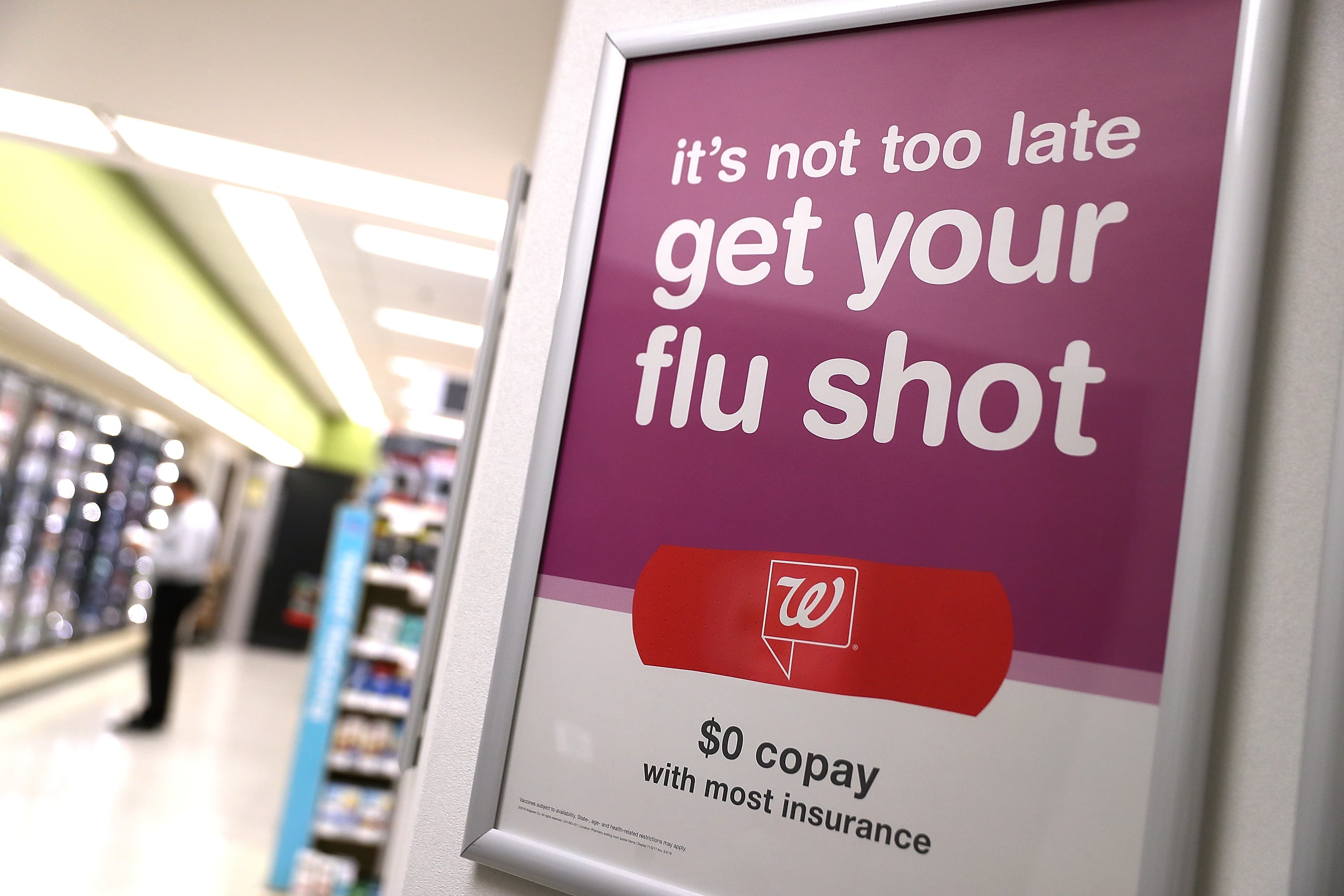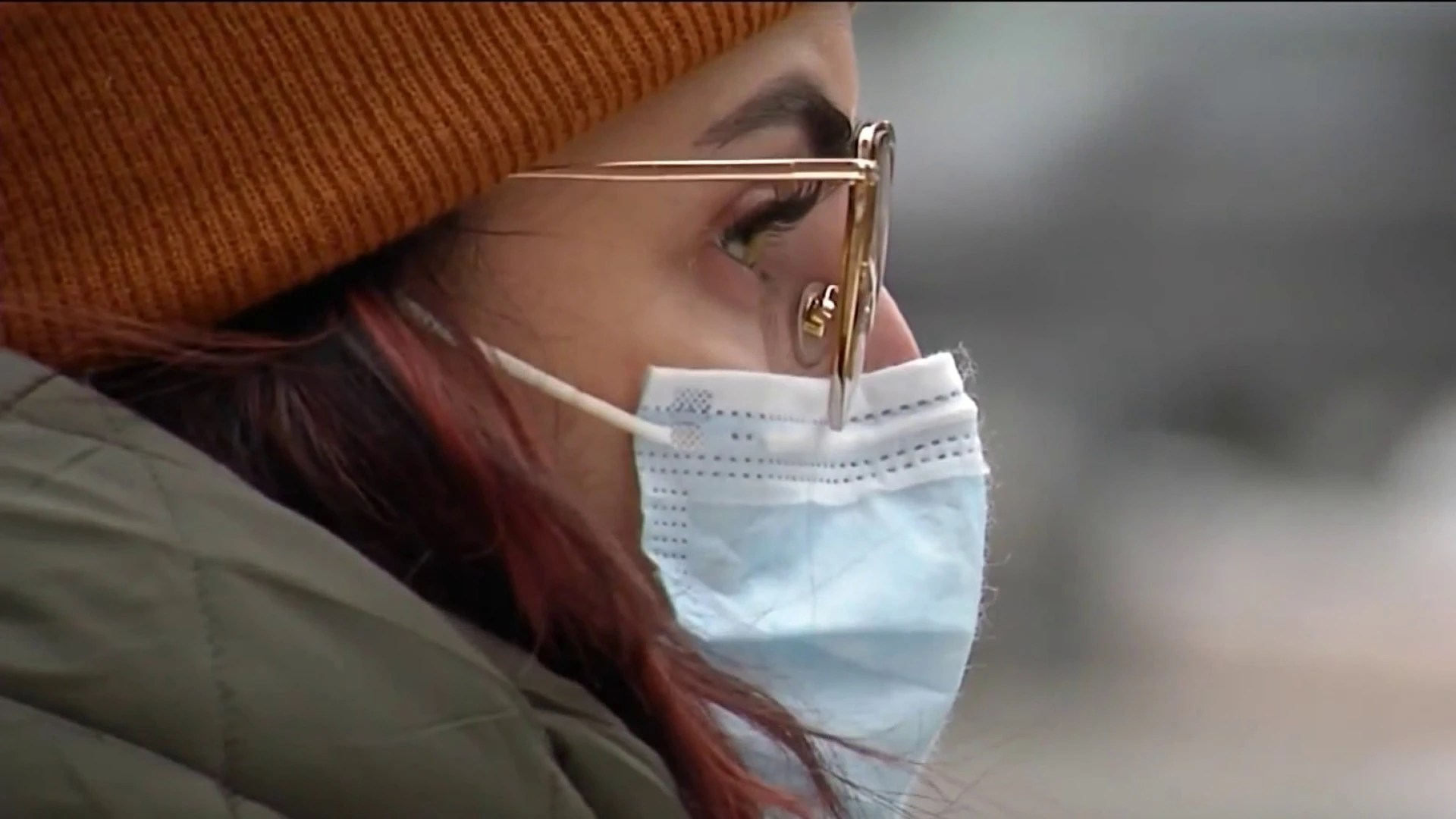Flu cases are rising across the Chicago area as hospitals report an overwhelming increase in pediatric admissions, but could the strain behind some current flu cases be making things worse?
Hospitals are already reporting a concerning rate of pediatric hospitalizations, with intensive care unit bed capacity dropping well into the single digits due to a combination of respiratory viruses and influenza. Some health experts fear a post-Thanksgiving surge could stretch already-struggling hospitals too far.
"It's only November and RSV has already come and hit us hard. And there's other viruses that don't make the news as much that are also surging right now just because it's respiratory virus season," said Dr. Allison Arwady, commissioner for the Chicago Department of Public Health. "If we see a significant surge, and we will see some surge no doubt about it, of flu and of COVID, on top of that, particularly for kids, you know, we may run out of good hospital capacity."
As of Friday, the Centers for Disease Control and Prevention said "seasonal influenza activity is elevated across the country," with levels reported to be high in Illinois.
Feeling out of the loop? We'll catch you up on the Chicago news you need to know. Sign up for the weekly Chicago Catch-Up newsletter here.
The Illinois Department of Public Health told NBC Chicago Tuesday that pediatric ICU bed availability was down to just 5% statewide.
Some experts believe the current flu strain is hitting children and seniors harder than previous strains.
According to IDPH, the current flu strain circulating most in the state is H3, with some cases being found to be H3N2. A similar trend is being reported nationally.
"The majority of viruses detected so far this season have been influenza A(H3N2)," the Centers for Disease Control and Prevention stated in its weekly update on Nov. 18.
Dr. Jose Romero, director the CDC's National Center for Immunization and Respiratory Disease, reportedly said the strain has historically be associated with more severe flu seasons for children and seniors.
"When we have more H3N2, we usually have a more severe flu season — so longer duration, more children affected, more children with severe disease," Dr. Andi Shane, a pediatrician and infectious disease expert at Children's Healthcare Atlanta, told CNBC.
DuPage County's health department on Tuesday revealed that it has had days where there are no available beds for seriously ill children.
"Hospitals and clinics are seeing a dramatic increase in the number of people who are ill with respiratory diseases like influenza (flu), respiratory syncytial virus (RSV), and COVID-19," the DuPage County Health Department said in a statement Tuesday. "Children are being especially impacted, with more children with severe illness seeking care at hospitals with some waiting hours to be seen. Some even need to be transferred to another healthcare facility."
The county fears that conditions will only worsen after the holiday.
"RSV is not a new virus. Influenza is not a new virus. But we're seeing both earlier and more severe cases of illness," Ayala told NBC Chicago. "And yes, we are concerned because... we're going to be getting together, we're going to be spending more time indoors versus outdoors. It all leads us to be concerned that this will get worse before it gets better."
At the same time, Advocate Aurora Health said all of its facilities have implemented a "limited-visitor policy" as they work to "reduce the spread of COVID, flu and other seasonal illnesses."
A spokesperson for the hospital told NBC Chicago the move was "due to the substantial increase in influenza activity."
Advocate Children’s Hospital in Park Ridge is one of many area pediatric hospitals dealing with unprecedented demand.
“I have never seen pediatric medicine like this in my practice, in my career,” Dr. John Howard, the site director for the pediatric emergency room, told NBC Chicago Tuesday.
The wait time for the emergency room is surging as well, to as much as 10 hours. Advocate Children’s also opened up a new “Fast Track” area on Nov. 7, to accommodate patients with less acuity, who may be able to go home the same day.
“Portions of the waiting room have been repurposed to create patient beds where they weren’t any,” said Howard.
So what should you think about if you're planning to gather this week?
"If you're not feeling well, that is, you know, first and foremost, stay home," Karen Ayala, executive director for the DuPage County Health Department, told NBC Chicago. "Don't really need to know why or what disease it is, but particularly respiratory diseases."
While COVID tests remain critical to preventing the spread of COVID, they won't help stop the spread of RSV or the flu.
"I tell parents all the time, coughs and snot - those are contagious," said Dr. Carly Senescu, pediatric hospitalist at Edward-Elmhurst Health. "So if your kid is coughing, that's contagious. If your kid is blowing their nose, licking a toy, sharing it with someone, that's all contagious. So whether or not they have a high enough viral load to pass it on is a little bit not as structured as it is for COVID. So I would say it's the same thing. Stay home when you're sick. Stay masked if you have symptoms."
Health officials are also urging people to get both their flu and bivalent COVID booster shots.



